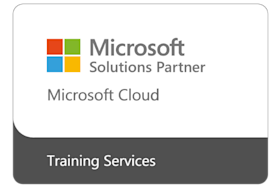What you’ll learn
After completing this course, students will be able to:
Identify core workloads for Azure Databricks
Use Data Governance tools Unity Catalog and Microsoft Purview
Ingest data using Azure Databricks
Using the different data exploration tools in Azure Databricks
Analyse data with DataFrame APIs
Describe key elements of the Apache Spark architecture
Create and configure a Spark cluster
Describe use cases for Spark
Use Spark to process and analyse data stored in files
Use Spark to visualise data
How to create Delta Tables
How to use schema versioning and time travel in Delta Lake
How to maintain data integrity with Delta Lake
Describe Lakeflow Declarative Pipelines
Ingest data into Lakeflow Declarative Pipelines
Use Lakeflow Declarative Pipelines for real time data processing
The key components and benefits of Lakeflow Jobs
How to deploy workloads using Lakeflow Jobs
Microsoft Azure at Lumify Work
As part of Lumify Group, Lumify Work has skilled more people in Microsoft technologies than any other organisation in Australia and New Zealand. We have a campus in the Philippines, too. We offer the broadest range of instructor-led training courses, from end user to architect level. We are proud to be the winner of the Microsoft MCT Superstars Award for FY24, which formally recognises us as having the highest quality Microsoft Certified Trainers in ANZ.
Who is the course for?
This course is designed for data professionals who want to strengthen their skills in building and managing data solutions on Azure Databricks. It’s a good fit if you’re a data engineer, data analyst, or developer with some prior experience in Python, SQL, and basic cloud concepts, and you’re looking to move beyond small-scale analysis into scalable, production-ready data processing. Whether your goal is to modernise analytics workflows, optimise pipelines, or better manage and govern data at scale, this course will equip you with the practical skills to succeed.
Course subjects
Explore Azure Databricks
Perform data analysis with Azure Databricks
Use Apache Spark in Azure Databricks
Manage data with Delta Lake
Build Lakeflow Declarative Pipelines
Deploy workloads with Azure Databricks Workflows
Prerequisites
You should already be comfortable with the fundamentals of Python and SQL. This includes being able to write simple Python scripts and work with common data structures, as well as writing SQL queries to filter, join, and aggregate data. A basic understanding of common file formats such as CSV, JSON, or Parquet will also help when working with datasets.
In addition, familiarity with the Azure portal and core services like Azure Storage is important, along with a general awareness of data concepts such as batch versus streaming processing and structured versus unstructured data. While not mandatory, prior exposure to big data frameworks like Spark, and experience working with Jupyter notebooks, can make the transition to Databricks smoother.
FREE E-BOOK: The New Era of Cloud Computing
We've created this e-book to assist you on your cloud journey, from defining the optimal cloud infrastructure and choosing a cloud platform, to security in the cloud and the core challenges in moving to the cloud.
Terms & Conditions
The supply of this course by Lumify Work is governed by the booking terms and conditions. Please read the terms and conditions carefully before enrolling in this course, as enrolment in the course is conditional on acceptance of these terms and conditions.


